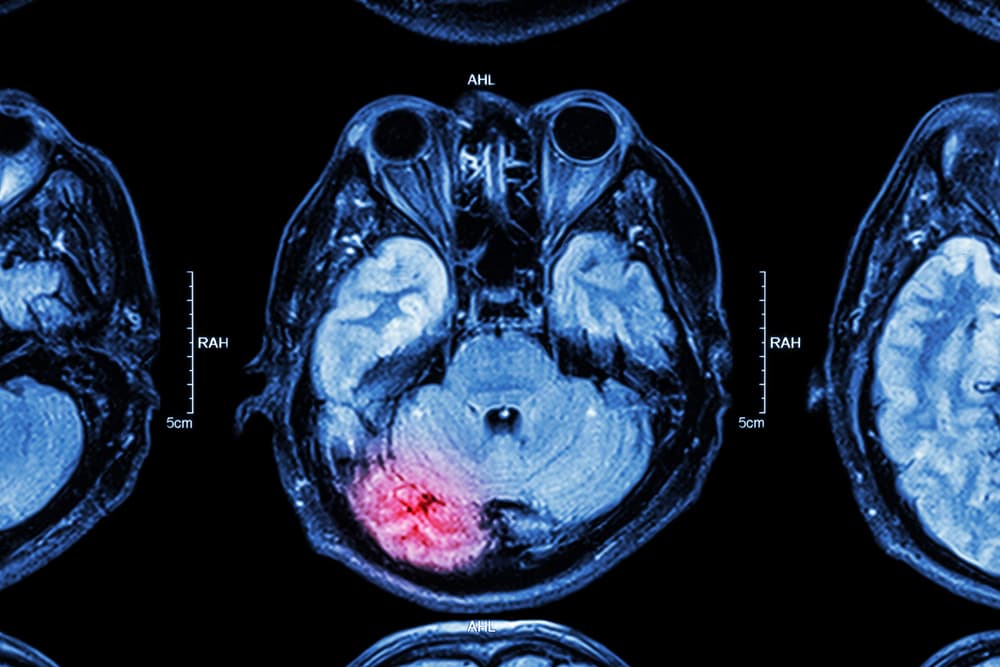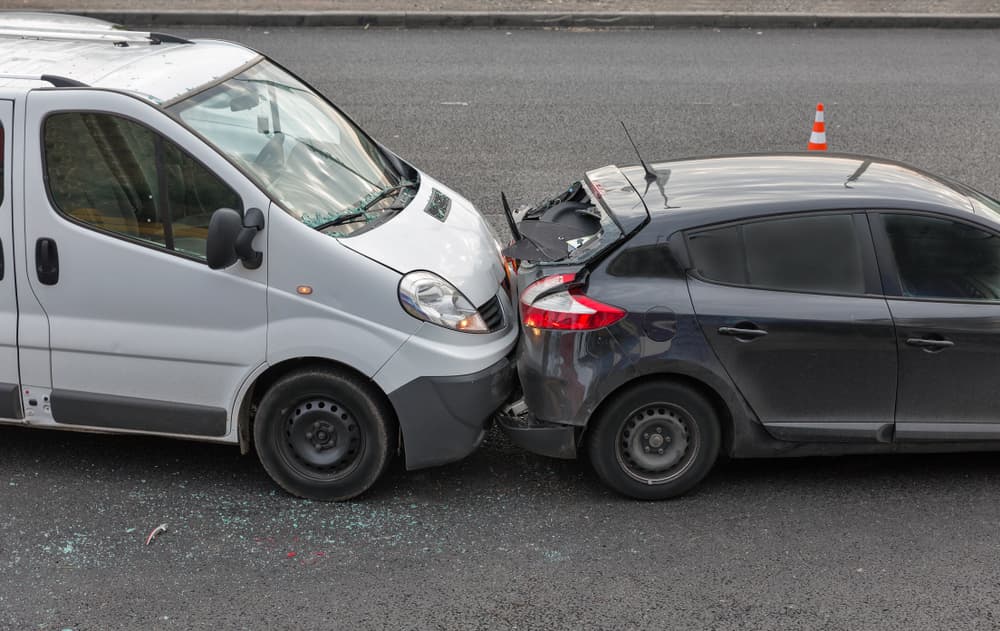When a car crashes, the occupants can shift forcefully around inside. Even though seat belts, airbags, and other safety features aim to keep people safe in an accident, they do not always prevent serious injuries.
One common injury from a traffic collision is a traumatic brain injury (TBI). A crash can cause you to hit your head on parts of your vehicle, including the windows, seat backs, dash, or steering wheel. Even without direct head trauma, the violent jolt of a crash can shake your brain inside your skull enough to cause tissue damage and a TBI.
Car crashes are a top cause of brain injuries, and what happens in an instant on the road can affect your life for weeks, months, or years to come.
Always take head trauma and brain injuries extremely seriously, as they can lead to life-threatening complications and lasting effects.
You need proper medical attention if you suffered a brain injury in a crash. Then, always consult an experienced Chicago car accident lawyer about your legal rights. In many situations, brain injury victims can obtain compensation to cover their medical bills and other losses.
Protect yourself medically and legally today.
Schedule a Free Initial Consultation Today!
Car Accidents are a Leading Cause of Brain Injuries
Car accidents are a leading cause of brain injuries, contributing significantly to the number of people with this devastating condition.

One primary reason car accidents cause brain injuries is the speed at which vehicles travel. Higher speeds increase the likelihood of severe accidents, increasing the force of impact and the potential for brain trauma.
Every type of collision can cause traumatic brain injuries.
- Rear-end collisions - When another vehicle hits your car from behind, it can violently jolt your head, causing brain damage.
- Side-impact collisions - Vehicles might not have airbags on the side where the collision occurs, leaving an occupant particularly vulnerable to trauma.
- Rollover accidents - If a car rolls, the roof might collapse, or occupants might hit their heads on many different parts of the car as it rolls over.
Even seemingly minor accidents can result in brain injuries, as your brain can still experience significant trauma even without visible external injuries.
Brain injuries sustained in car accidents might happen in an instant but can have long-lasting consequences. A victim may experience cognitive impairments, memory loss, difficulty concentrating, mood swings, and even permanent disabilities. The injured person and their loved ones can suffer immense physical, emotional, and financial burdens..
The combination of high speeds, forceful impacts, and more contributes to the severity and frequency of these injuries.
While you cannot undo your brain injury, you can seek justice if someone else caused the car accident. Seek a consultation with a car accident attorney who understands brain injury claims.
Symptoms of Brain Injuries
Symptoms of serious brain injuries can vary depending on the specific type and severity of the injury, but they often manifest as significant disruptions in physical, cognitive, and emotional functioning. If you feel anything out of the ordinary in your thinking, mood, or other abilities, seek prompt medical attention and appropriate treatment.
One of the primary symptoms of a serious brain injury is a loss of consciousness. This can range from a brief period of being dazed or disoriented to an extended state of unconsciousness or coma. However, loss of consciousness does not always happen with brain injuries, and the absence of this symptom does not rule out the possibility of a severe injury.
Other physical symptoms may include:
- Persistent headaches
- Dizziness
- Nausea or vomiting
- Seizures
- Difficulty speaking or understanding speech
- Sensory impairments, such as blurred vision or ringing in the ears
- Physical coordination and balance issues
- Difficulty walking or talking properly
Cognitive symptoms of serious brain injuries can be wide-ranging and differ for each victim. They may include confusion, memory loss, difficulty concentrating or paying attention, slowed thinking, and problems with problem-solving or decision-making. Individuals may experience changes in their ability to communicate effectively or express themselves verbally or in writing.
Emotional and behavioral changes are also common in serious brain injuries. These can manifest as irritability, mood swings, depression, anxiety, and a loss of interest in previously enjoyed activities. Personality changes, aggression, and impulsivity may also occur.
Symptoms of serious brain injuries can appear immediately after the injury or develop gradually over time. This can make identifying a brain injury following an accident even more challenging. Getting prompt medical testing and evaluation can ensure doctors diagnose and begin treating a brain injury.
You should always seek immediate medical attention to assess the severity of the injury and initiate appropriate treatment and rehabilitation. You might need brain injury treatment immediately if you feel tired, confused, disoriented, moody, or anything else unusual.
Medical Evaluation and Treatment for Car Accident Brain Injuries
Getting treatment for car accident brain injuries is crucial to ensure the best possible recovery and prognosis. Even if your injury seems mild initially, you can experience worsening symptoms or life-threatening complications without proper medical care.
Some complications include:
- Excessive intracranial pressure, possibly requiring brain surgery
- Fluid or bleeding in the brain
- Persistent post-concussion syndrome
- Double-impact syndrome, which can be life-threatening
A qualified doctor or neurologist should evaluate any potential brain injury after head trauma in a crash. They will conduct a thorough examination, review your medical history, and consider any symptoms or signs of brain injury. Diagnostic tests, such as CT or MRI scans, may be necessary to provide a more detailed assessment of your injury.
Once you have a brain injury diagnosis, your treatment plan will depend on the part of your brain that suffered damage and the extent of the damage. Treatment for brain injuries may also involve a multidisciplinary approach, depending on the severity of the injury and the particular patient.
Treatment may include:
- Brain surgery
- Hospitalization or ICU admission
- Rest and observation
- Medication management for pain or other symptoms
- Cognitive and physical therapy
- Rehabilitation programs
- Psychological support
Some brain injury victims might be in a coma and spend weeks in the ICU. Others might receive doctor’s orders to rest from their usual activities and seek a re-evaluation in a few weeks. In either situation, you need a doctor to tell you what you need to recover physically.
For example, if someone does not see a doctor for their concussion and continues working and playing sports, they can suffer another, more severe or even deadly brain injury. Never underestimate your brain injury. Always get a diagnosis and treatment plan immediately.
Long-Term Effects and Rehabilitation for Car Accident Brain Injuries
Car accidents can result in severe brain injuries that have long-term effects on the victim's life, even with extensive medical treatment. Some people develop lifelong disabilities from a brain injury and need ongoing care and assistance.
The long-term effects of brain injuries can vary depending on the severity and location of the injury. Victims may experience cognitive impairments such as memory loss, difficulty concentrating, and decreased problem-solving abilities. Emotional and behavioral changes, including depression, anxiety, irritability, and mood swings, may also occur. Physical effects such as headaches, dizziness, fatigue, and difficulty with balance and coordination are also common.
Even with rehabilitation and therapy, brain injury victims might never regain their prior life.
They might face challenges with:
- Performing their jobs
- Succeeding in school or attaining educational goals
- Participating in sports and other recreational activities
- Engaging in hobbies that require physical or mental coordination
- Caring for themselves daily
If you develop long-term symptoms of a brain injury following a car crash, you can hold the person who caused the crash fully liable for your losses. A car accident lawyer can assess liability for your injuries.
Establishing Liability for Car Accident Brain Injuries
Establishing liability for car accident brain injuries is necessary to seek compensation for your losses. To prove liability, you must prove another party’s negligence caused your injuries.
Negligence has four key elements under the law:
- The party owed you a duty of care
- They breached the duty of care
- The breach caused your injuries
- You incurred losses due to your injuries
The injury claim process requires you to provide sufficient evidence to prove each element.
Proving duty is often straightforward, as every driver owes others a duty of care to drive safely and follow the law. If a driver violates a traffic law or makes an unsafe error, they breach their duty. Your attorney will know what evidence to use to prove a breach of duty by an at-fault driver. Your lawyer will also provide evidence showing that your injuries directly resulted from the accident and your losses.
Usually, you can hold another driver liable for a car accident and resulting brain injuries.
However, you can hold other parties negligent. For example:
- A car manufacturer, if an auto defect caused the crash
- Construction crews or government agencies, if the accident happened due to road hazards
- An employer, if the negligent driver was working when the crash happened
More liable parties may have caused your accident than you think, so always allow your attorney to determine who should compensate you for your brain injury and related losses.
Seeking Compensation for Car Accident Brain Injuries
You cannot turn back time and avoid your accident and brain injury. Instead, monetary compensation is the legal relief available to injury victims under the law. Compensation can help alleviate the financial burden and cover the costs of medical treatment, rehabilitation, lost income, and other damages. You can also seek compensation for your intangible losses, like pain and suffering or permanent effects on your life.
Here are key things to consider when pursuing compensation for a serious injury:
- Consult a car accident attorney - Always allow a skilled legal professional to calculate your losses. Seek help from a lawyer who understands brain injuries and the typical financial recovery available.
- Never believe insurance companies - Compensation for brain injuries can be all over the map, as some people might recover quickly, and others might develop debilitating long-term disabilities. Insurance companies will try to convince you that your claim is worth much less than it is. Never accept their claim valuation - always speak with an attorney.
- Economic damages - Your lawyer will calculate the economic damages resulting from the brain injury, such as medical expenses, rehabilitation costs, lost income, and future medical care needs. These financial losses should be part of your compensation claim.
- Non-economic damages - They will next consider the non-economic damages from your brain injury, such as pain and suffering, emotional distress, loss of enjoyment of life, and diminished quality of life. Always account for these intangible losses in your claim.
- You have the right to negotiate - The first settlement offer might be low, but this is not the end of the road. Your attorney will negotiate with the insurance company to reach a higher settlement that covers your damages. If they cannot negotiate a suitable settlement, they may advise pursuing a lawsuit and representing your case in court. You have ways to fight for the full compensation you deserve.
Seeking compensation for car accident brain injuries requires patience, perseverance, and skilled legal representation. With the help of an experienced car accident attorney, you can protect your rights and seek the compensation you need to cover the physical, emotional, and financial effects of your brain injury.
Seek Help from a Car Accident Lawyer

After traumatic brain injury, never hesitate to seek legal support and representation. Brain injuries require rest and care, so always leave the work and stress of an injury claim to the professionals. Seek a free case evaluation from an experienced personal injury lawyer today.



